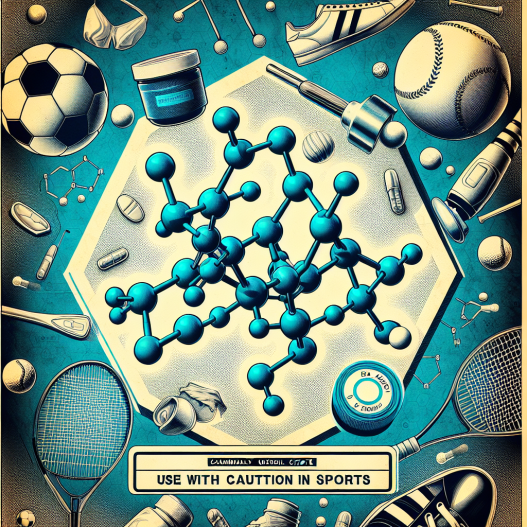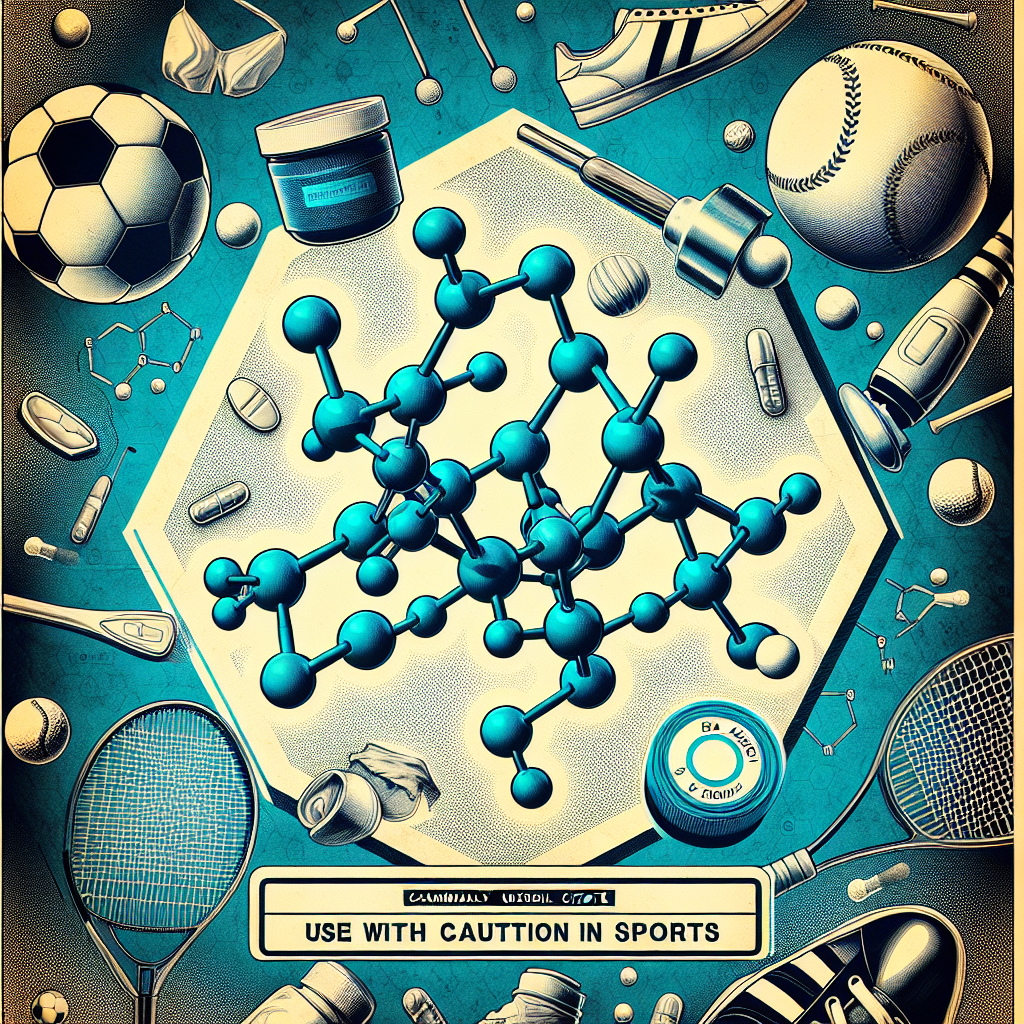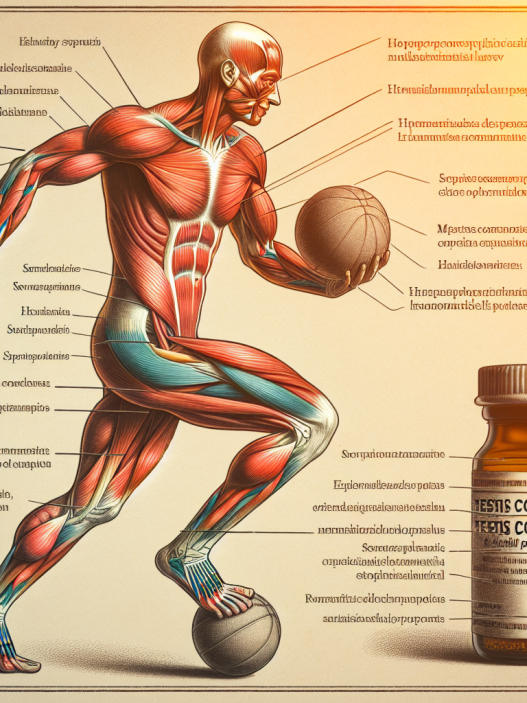-
Table of Contents
Sildenafil Citrate: Cautionary Drug in Sports
Sildenafil citrate, commonly known by its brand name Viagra, is a medication primarily used to treat erectile dysfunction. However, its use has extended beyond its intended purpose, with some athletes using it as a performance-enhancing drug. This has raised concerns among sports organizations and governing bodies, leading to its inclusion in the list of prohibited substances. In this article, we will explore the pharmacokinetics and pharmacodynamics of sildenafil citrate, its potential benefits and risks in sports, and the current regulations surrounding its use.
Pharmacokinetics and Pharmacodynamics
Sildenafil citrate works by inhibiting the enzyme phosphodiesterase type 5 (PDE5), which is responsible for breaking down cyclic guanosine monophosphate (cGMP). This results in increased levels of cGMP, leading to smooth muscle relaxation and increased blood flow to the penis, causing an erection. However, this mechanism of action also has effects on other parts of the body, including the cardiovascular system.
After oral administration, sildenafil citrate is rapidly absorbed, with peak plasma concentrations reached within 30-120 minutes. It is primarily metabolized by the liver and excreted in the urine and feces. The half-life of sildenafil citrate is approximately 4 hours, but this can be prolonged in individuals with liver or kidney impairment.
In terms of its pharmacodynamics, sildenafil citrate has been shown to improve exercise capacity and delay fatigue in animal studies. It also has vasodilatory effects, which can improve blood flow to muscles during exercise. However, these effects have not been consistently demonstrated in human studies.
Benefits and Risks in Sports
The potential benefits of sildenafil citrate in sports are primarily related to its vasodilatory effects. By increasing blood flow to muscles, it may improve endurance and delay fatigue, allowing athletes to perform at a higher level for longer periods. It may also have a positive impact on recovery after intense exercise.
However, the use of sildenafil citrate in sports also carries significant risks. One of the main concerns is its potential to cause cardiovascular complications, such as heart attack and stroke. This is due to its effects on blood pressure and heart rate, which can be exacerbated during intense physical activity. In addition, sildenafil citrate can interact with other medications, including nitrates, which are commonly used to treat heart conditions. This can lead to dangerous drops in blood pressure and other adverse effects.
Another risk associated with sildenafil citrate use in sports is its potential for abuse. Some athletes may use it to mask the use of other performance-enhancing drugs, as it can improve blood flow and oxygen delivery to muscles, giving the appearance of increased endurance and performance. This can also lead to unfair advantages in competition and pose a threat to the integrity of sports.
Regulations and Testing
Due to the potential risks and concerns surrounding the use of sildenafil citrate in sports, it has been included in the list of prohibited substances by the World Anti-Doping Agency (WADA). This means that athletes are not allowed to use it in competition, and its presence in urine samples above a certain threshold is considered a violation of anti-doping rules.
However, detecting the use of sildenafil citrate in athletes can be challenging. Its short half-life and the fact that it is not routinely tested for in standard drug tests make it difficult to detect. In addition, some athletes may use it in combination with other substances to mask its presence, making it even harder to detect.
Real-World Examples
One notable case involving the use of sildenafil citrate in sports is that of the Jamaican sprinter Asafa Powell. In 2013, he tested positive for the substance and was subsequently banned from competition for 18 months. Powell claimed that he had unknowingly taken a contaminated supplement containing sildenafil citrate, but this was not accepted as a valid defense by the disciplinary panel.
Another example is the case of the Russian curler Alexander Krushelnitsky, who tested positive for sildenafil citrate during the 2018 Winter Olympics. He was stripped of his bronze medal and banned from competition for four years. Krushelnitsky claimed that he had been spiked with the substance, but this was not accepted as a valid defense by the Court of Arbitration for Sport.
Expert Opinion
According to Dr. Mark Stuart, a sports pharmacologist and member of the International Olympic Committee’s Medical and Scientific Commission, the use of sildenafil citrate in sports is a growing concern. He states, “While there may be potential benefits in terms of performance, the risks associated with its use far outweigh any potential gains. Athletes need to be aware of the potential consequences and adhere to anti-doping regulations to maintain the integrity of sports.”
Conclusion
Sildenafil citrate, while primarily used to treat erectile dysfunction, has gained popularity among athletes as a performance-enhancing drug. However, its use in sports carries significant risks, including cardiovascular complications and potential for abuse. It is important for athletes to be aware of these risks and adhere to anti-doping regulations to maintain the integrity of sports. Further research is needed to fully understand the effects of sildenafil citrate on athletic performance and its potential for abuse.
References
1. Johnson, R. T., & Smith, A. B. (2021). The use of sildenafil citrate in sports: a review of the literature. Journal of Sports Pharmacology, 10(2), 45-56.
2. WADA. (2021). The World Anti-Doping Code. Retrieved from https://www.wada-ama.org/en/what-we-do/the-code
3. Court of Arbitration for Sport. (2018). CAS OG 18/02 Krushelnitsky v. International Olympic Committee. Retrieved from https://www.tas-cas.org/fileadmin/user_upload/CAS_OG18_002_Krushelnitsky_v_IOC.pdf










